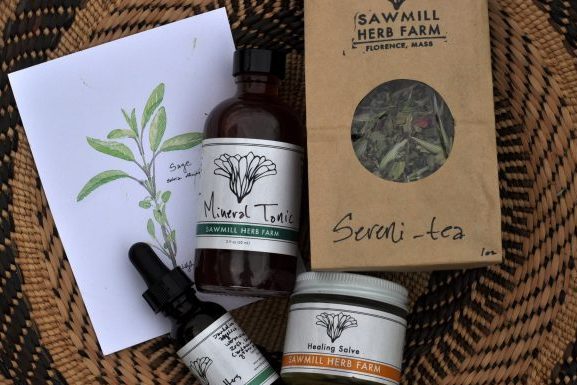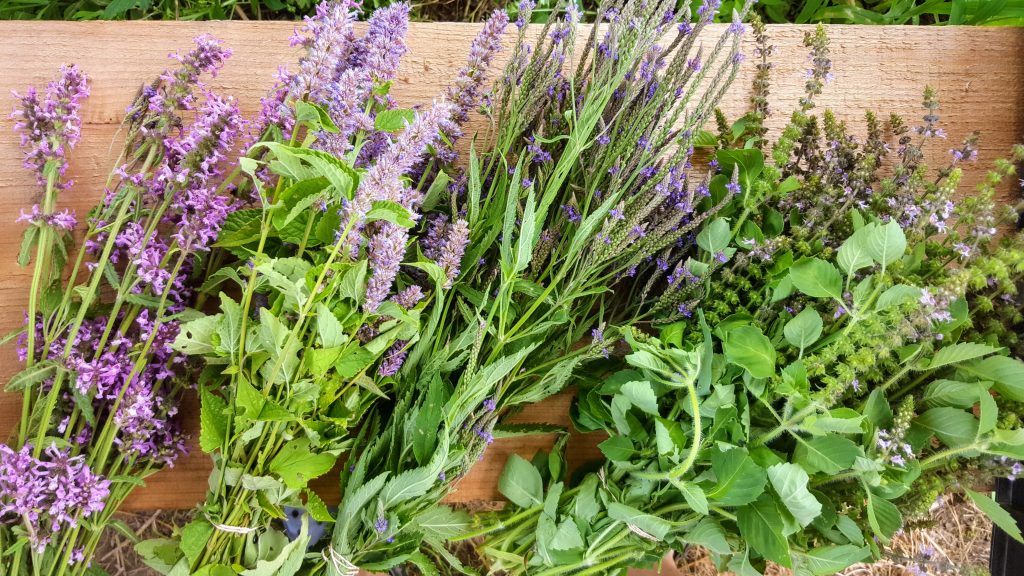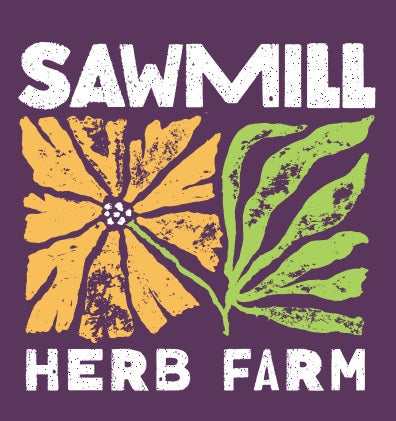Herb Profile: Lemon Balm
Lemon balm, Melissa officinalis

Lemon balm is one of the few sour mints and is cooling and sedative. A tincture of fresh lemon balm is excellent as a general sedative, in particular for those with nervousness, anxiety, insomnia, hyperthyroidism or hyperadrenalism.
Lemon balm is a carminative and relieves spasms in the digestive tract. It has a strengthening influence on the heart and circulatory system, lowering blood pressure while simultaneously calming the nerves. Lemon balm has been show to be effective externally against outbreaks of the herpes simplex virus. It’s antiviral properties also help with alleviating colds & flu.
Lemon balm is best used fresh, frozen or preserved in alcohol as it loses some of its oils when dried. Make a cream, oil or tincture to help heal herpes sores, burns or dry skin. A poultice of the fresh leaf can help relieve pain caused by cramping and nervous headaches. Use lemon balm fresh in cooking as a substitute for lemon thyme, lemons or mint. Drink lemon balm tea 30 minutes before bed to help with insomnia. The tincture of the fresh herb in glycerine is an effective children’s medicine.
Preparations:
Teas
Dry your lemon balm to make these teas for later use or use fresh and be sure to cover the cup while steeping to prevent volatile oils escaping in the steam.
Nervine Tonic
Blend equal amounts of lemon balm, oats and chamomile and drink daily.
Melissa Tea Blend (from Rosemary Gladstar)
Combine and prepare as an infusion 3 parts lemon balm, 1 part borage flowers, 1 part chamomile, 1 part lemon verbena and 1 part St. Johns Wort. This infusion is relaxing and gently stimulating. It increases energy in the system by helping release energy blocks and stress.
Headache Tea or Tincture
Combine and prepare as an infusion 2 parts lemon balm, 1 part feverfew and 1 part lavender. Drink 1/4 cup every 30 minutes until the headache is gone. If made into a tincture, take 1/4 teaspoon three times daily.
Tonic Tea – Refreshing and nourishing tonic
Combine and prepare as an infusion 2 parts lemon balm, 2 parts nettle, 2 parts mint, 2 parts raspberry leaf and 1 part milky oats. Drink 3 to 4 cups daily.
Tincture & Glycerine
Lemon balm makes a great tincture & a delicious glycerine (perfect for kiddos!)
Lemon Balm Honey
With its lovely flavor, lemon balm can be used to make an herbal honey. Chop lemon balm leaves coarsely and pack into the bottom of a glass jar. Pour honey over them until topped by an inch of honey. Make sure all plant parts are submerged and cover with a lid. Check on the jar every day, making sure that all of the herb is under the honey. Fresh lemon balm has a high water content and will go bad if exposed to air. You can try wilting the lemon balm for a day on the counter before making the honey. After about a month, you can strain out the herbs, or leave them in the jar if you prefer. Use your herbal honey on scones and freshly baked bread, and in tea. The honey preserves the medicinal benefits of the lemon balm. Try making an herbal honey with both lemon balm and thyme. Delicious together, and medicinal too – lifting the spirits and supporting the respiratory system.
Cautions/Contraindications
None. Lemon balm is extremely safe.
🌿 Grow, Harvest & Learn with Us This Season! 🌿
Whether you're looking to fill your apothecary with vibrant, fresh herbs, start your own garden with strong, healthy seedlings, or deepen your knowledge of herbal medicine, we've got you covered.
Join our Fresh Herb CSA to receive weekly bundles of medicinal and culinary herbs, plus guidance on how to use them. Pre-order seedlings to get a head start on your herb garden with our carefully grown plants. Explore our herbal education programs to learn hands-on medicine-making, plant connection, and more.
Looking for high-quality, certified organic herbs year-round? We also offer dried herbs and small-batch tea blends, thoughtfully grown and harvested to bring you the best in herbal wellness.
Be part of a community that values resilience, self-sufficiency, and deep connection to the land. 💚
Sign up for the CSA, pre-order seedlings, shop our dried herbs and tea blends, or explore our herbal education offerings today!
Disclaimer
These statements have not been evaluated by the Food and Drug Administration. This product is not intended to diagnose, treat, cure, or prevent any disease. For educational purposes only. We do not endorse the websites linked to in the resources and have not extensively reviewed all the information on external pages for accuracy. Everyone reacts differently to herbs and we do not attempt to be completely inclusive in the information and contraindications for each herb. Trust your intuition if something is not feeling right for you.
Shop our Apothecary and Nursery
-

Apothecary Products
Nourish yourself and your family with a certified organic farm grown apothecary ...
-

Nursery Products
Grow your garden. We grow certified organic herb, flower and vegetable starts. ...


